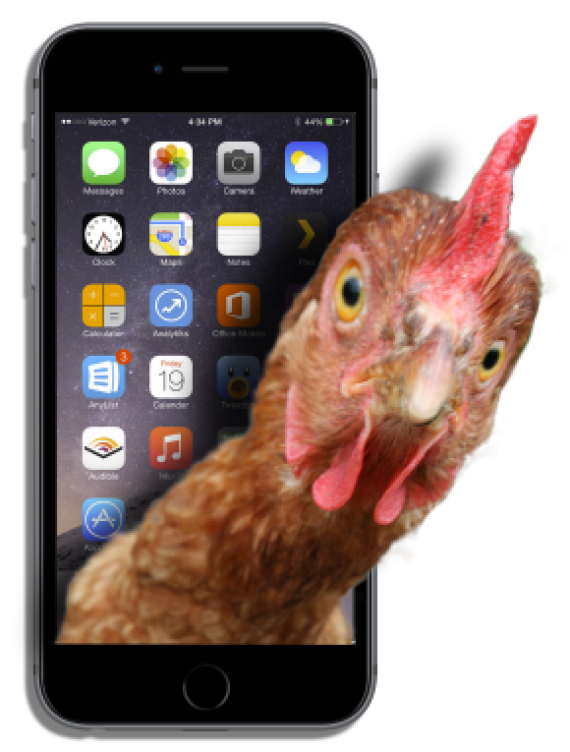Photo: ResourceVan Niekerk doesn’t know the app because ‘you can’t download it yet with a Windows phone’. But she doesn’t think the app will solve the feather-pecking problem. ‘An app can help but the poultry farmer’s intuition is crucial. He has to sense today that something’s going to go wrong in the barn tomorrow.’
Why do hens peck each other?
‘We don’t know exactly. There are many factors involved. The stage of growth to adulthood is very important, as is good bedding. The chickens’ genetic predisposition, lighting and management all play a part. The wrong feed can have an effect, and so can too many changes to the composition of the feed.
That is why feed providers are often closely involved in the raising of laying hens. It also explains why it is a feed manufacturer that developed this app. Flocks of chickens with sharp, untrimmed beaks, have proven much more sensitive to disturbances, stress and disease than flocks with trimmed beaks. So from next year, when beak-trimming will be banned, poultry farmers are going to need to be much more alert to signs of stress.’
Why are hens with untrimmed beaks more sensitive?
‘We are doing research on that, but we haven’t answered that question yet. A calm atmosphere in the barn is an important factor and the presence of sharp beaks may be upsetting. These are relatively new questions. Previously, when they farmed battery hens, poultry farmers didn’t need to take hen behaviour into account. Once batteries were banned they had to learn how to keep chickens all over again. Now that the beaks have to stay whole, they must learn to look at the animal’s behaviour even more thoroughly.’
How can an app help?
‘Breeding and feed companies keep track of data on the flocks of laying hens they provide or feed. That fast-growing mass of field data can contain information about the conditions under which chickens start feather pecking. In that sense, big data can bring us closer to the truth.’
Photo: Thea van Niekerk

